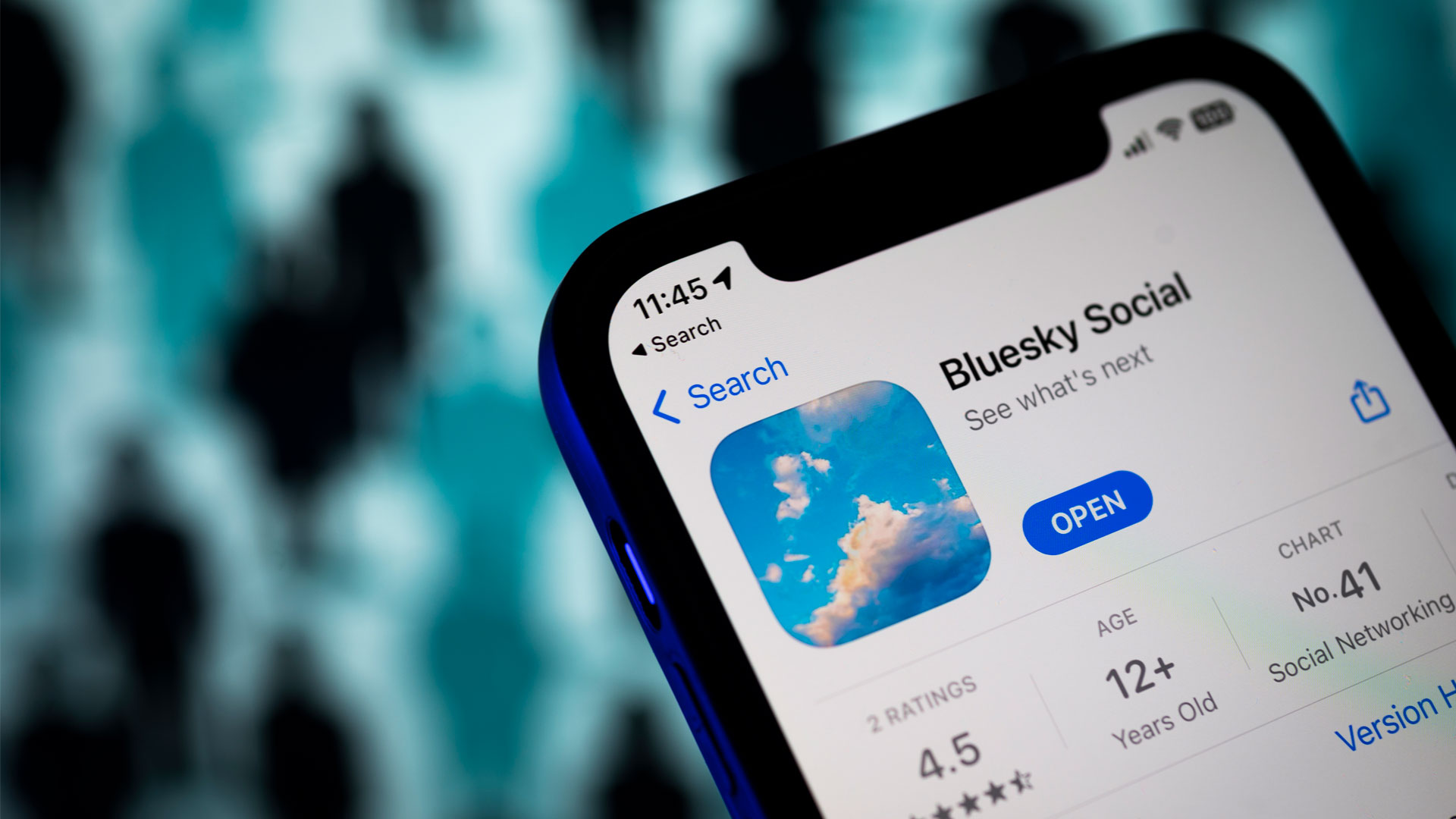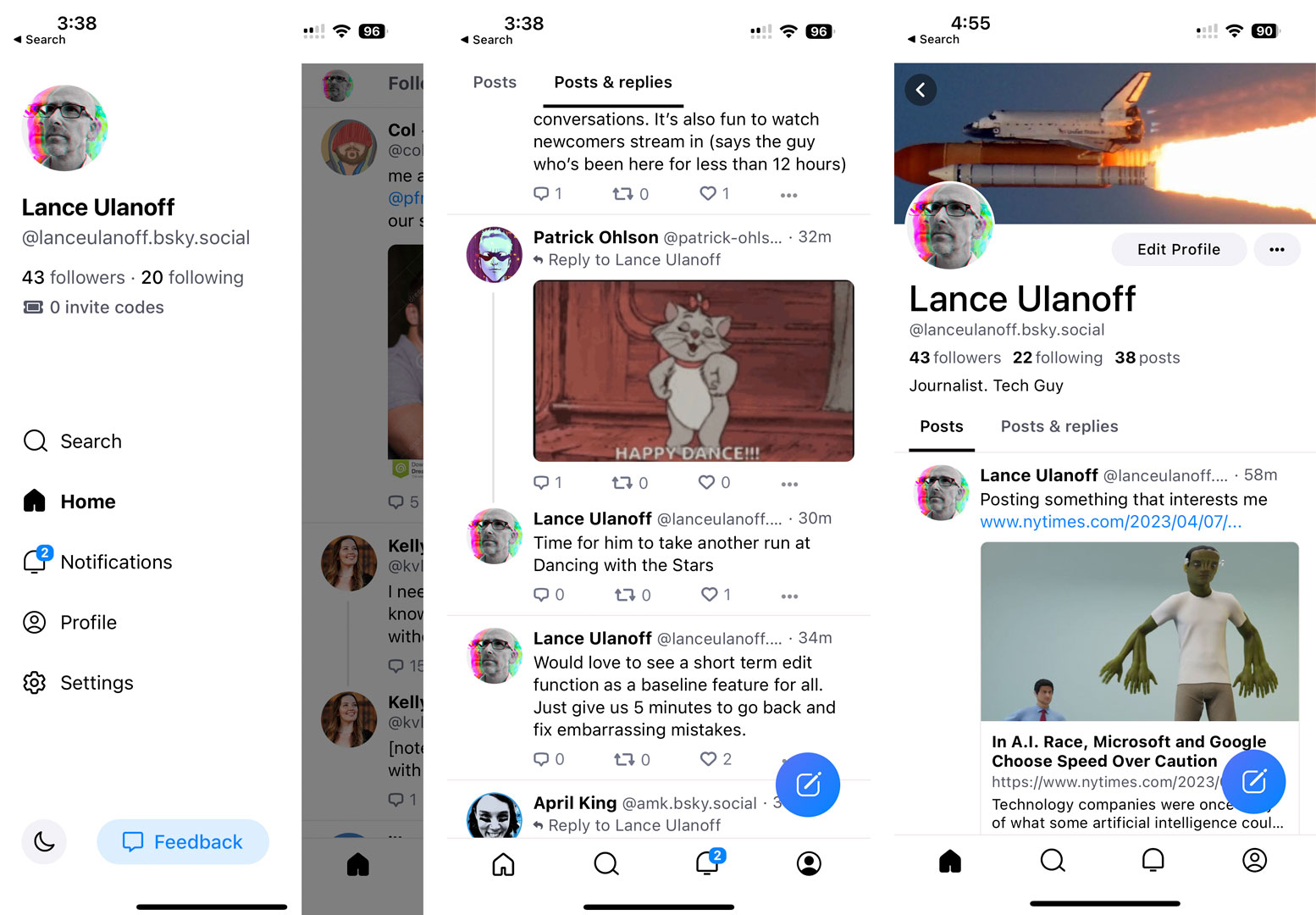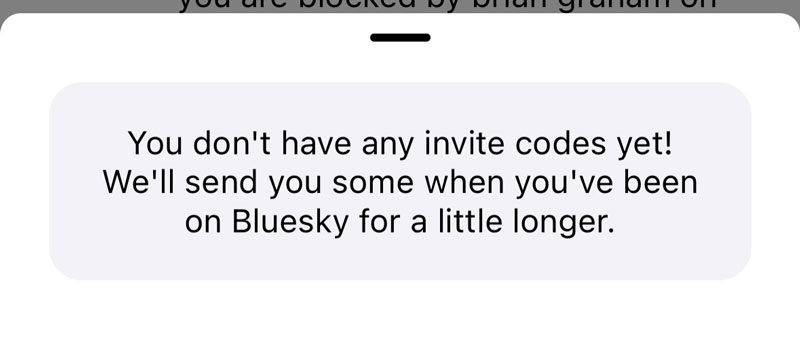Jack Dorsey's Bluesky is like Twitter without Musk – and that's good enough for me
An Musk-free zone

Bluesky Social might be the real antidote to what ails Twitter.
It had been another caustic and demoralizing night on Twitter, a platform I once loved, but which has now devolved into a circus of sycophantic Elon Musk-adoring clowns, when I noticed a new DM from someone I didn't really know, but who was offering me an invite code for Bluesky Social.
Former Twitter CEO Jack Dorsey quietly launched Bluesky Social, a decentralized social media platform, back in October of 2022. Virtually no one I knew had even seen it, but the app had recently dropped on both Android and iOS. And over the past couple of days (I'm writing this on April 25), the invite-only platform has been expanding, thanks to longer-term users gathering and distributing invite codes to friends, influencers, and even celebrities.
I vaguely recalled downloading Bluesky on iOS when I first heard about it, but without a code, there wasn't anything I could do with it beyond admiring the app's pretty blue-sky background.
Sunday morning: a new social option
Bluesky Social is, like fellow Twitter replacement Mastodon, another micro-blogging social media platform that allows you to create posts, share, like, and follow. Instead of centralized services, which, Dorsey now regrets creating with Twitter, it's distributed so that anyone can build an interface to display the data and activity flowing underneath. It's also designed so that your identity and information is easily transferable to any other platform that supports the protocol (Authenticated Transfer Protocol).
I'm certainly no expert on the merits of decentralized platforms like Mastodon versus centralized ones like Twitter, and thanks to my early experiences on Mastodon I wasn't entirely a fan of the model. As far as I'm concerned, if a social platform isn't dead simple, it's dead in the water, and decentralized platforms tend to add a distasteful layer of complexity, over-emphasizing the 'distributed' nature of it all, so that you struggle to find the virtual room where everyone is gathering.
Bluesky Social, though, isn't like that.
Get daily insight, inspiration and deals in your inbox
Sign up for breaking news, reviews, opinion, top tech deals, and more.
Sunday afternoon: getting a handle
There wasn't much to the set-up process. I created a username and password, selected the default server, and, for my full identification, Bluesky appended '.social.bluesky' to my handle (in full, it's my domain name). You also have an editable display name. As I do with all social media, I went with my full name. You can also add a brief description. Before I knew it, I was inside the rather simple but also quite familiar-looking app. By the way, no one seems to care if you include a link to your Twitter page in your bio. I wonder if Musk would allow anyone to link directly to Bluesky from Twitter.
Yes, it does look like a trimmed-down version of Twitter. On your Profile page there are avatar images (usually a photo) and a wide banner image above that, which can be a photo, as well. Your tabs for Following, Followers, and Posts are right below that. The Home screen has just Home, Search, Notifications, and Profile. The content flow has just two streams: Following and What's Hot.
It can be quiet, reserved, thoughtful, or even polite. Overall, BlueSky is the equivalent of a social media Shangri-La.
Your up-to 300-character posts can include links (and optional link cards for art and story description), images from your library, or photos from your camera. It lacks a GIF library, which does limit expression somewhat, and also the ability to bookmark favorite posts. However, while the platform can feel somewhat threadbare in places, it never feels amateurish.
Naturally, I didn't know what to post at first, so I started with 'Hello.' Then I posted some concerns about understanding what I could bring to Bluesky, and what I might get out of it (my reason for being there, I guess).

Monday morning: ready for a blue sky
The next morning I tried to get a little more aggressive, posting more frequently and posing questions. The engagement was low, but small corps of users were already clustering around my account. Before long, I had a few dozen followers.
I quickly found that the navel-gazing I participated in on Twitter, constantly checking my own mentions and likes or retweets on my posts, didn't really work on Bluesky. The action instead was in what I brought to other people's posts and conversations.
I started following people, and then switching between the Following and What's Hot tabs to find fresh content where I could engage. There were a lot of people talking about the platform, but also about some breaking news. During my visit, Tucker Carlson got the heave-ho from Fox News, and longtime anchor Don Lemon was booted from CNN. There was some chatter and commiserating around that news, but it never devolved into anger or recrimination. Instead, it was treated like normal news, as in, 'Oh, this happened. That's interesting. Moving on.'
Monday lunchtime: conscientious consumption
Throughout the day, people were handing out invite codes, and fresh faces would appear in the Bluesky Social stream. There were few enough of us that you could almost notice every person who arrived and, in a very un-Twitter-like fashion, they would announce themselves and their interests. It was all kind of sweet.
There are celebrities and influencers on the platform, and even a precious few media outlets (Decrypt is there, but not CNN or The New York Times). There are also a lot of programmers and, unsurprisingly considering Decrypt's presence and the app's parentage (Dorsey is a crypto-proponent), some very non-agressive crypto enthusiasts.
Guardians of the Galaxy Director James Gunn is on the platform, and while I was getting my feet wet he was – in real-time while on a flight and from 30,000ft – getting his movie-star star friends to sign up. He brought on his brother, actor Sean Gunn (Gilmore Girls and the physical actor for Guardians of the Galaxy's Rocket), and GoTG actress Pom Klementieff.
I noted that actor and comedian Kumail Nanjiani and Director Christopher McQuarrie joined as well. The weird thing is how relatively few followers anyone has on Bluesky Social. On Twitter, James Gunn has 1.5 million followers; on Bluesky he has, as of this writing, 1,295. Replies to their posts have low-enough engagement that, if you do post something in their feed, there's a chance they might see it.
Monday afternoon: celeb games
As I started following Gunn, McQuarrie, and others, I briefly wondered about identity and authentication issues. How did we know these people were the real deal? There are no blue, gold, or other ticks. In some cases, the stars were vouching for each other. But even for regular people, it can be hard. Some have their own top-level domains (which they can feature in their bios) and enough online content that they're easy to verify. It's not, however, a consistent approach, and I have to assume that Bluesky will have a real plan before it grows beyond the invite-only stage.

The conversations we had about identity, influencers, and previous invite-only platforms (remember when Gmail was invite-only?) felt so different than the high-stakes engagement of Twitter. People don't seem overheated and raring for a fight on Bluesky Social (okay, there was a tiny bit of grump name-calling). Granted, it's still a closed space, and there's no telling what Bluesky Social will be like after six months of open use. Right now, there really aren't visible community guidelines, and it's not entirely clear to me what is and isn't allowed.
And you know what else is missing from Bluesky? Ads, and commercial brands.
Bluesky Social is not a firehose of updates. It can be quiet, reserved, thoughtful, or even polite. Overall, BlueSky is the equivalent of a social media Shangri-La. Can this utopian vibe last? Probably not, but it'll be fun – or at least relaxing – for as long as it does.
I may eventually get some invite codes to hand out. Maybe, if like me you're sick of Twitter and Elon Musk, you might want one.

A 38-year industry veteran and award-winning journalist, Lance has covered technology since PCs were the size of suitcases and “on line” meant “waiting.” He’s a former Lifewire Editor-in-Chief, Mashable Editor-in-Chief, and, before that, Editor in Chief of PCMag.com and Senior Vice President of Content for Ziff Davis, Inc. He also wrote a popular, weekly tech column for Medium called The Upgrade.
Lance Ulanoff makes frequent appearances on national, international, and local news programs including Live with Kelly and Mark, the Today Show, Good Morning America, CNBC, CNN, and the BBC.